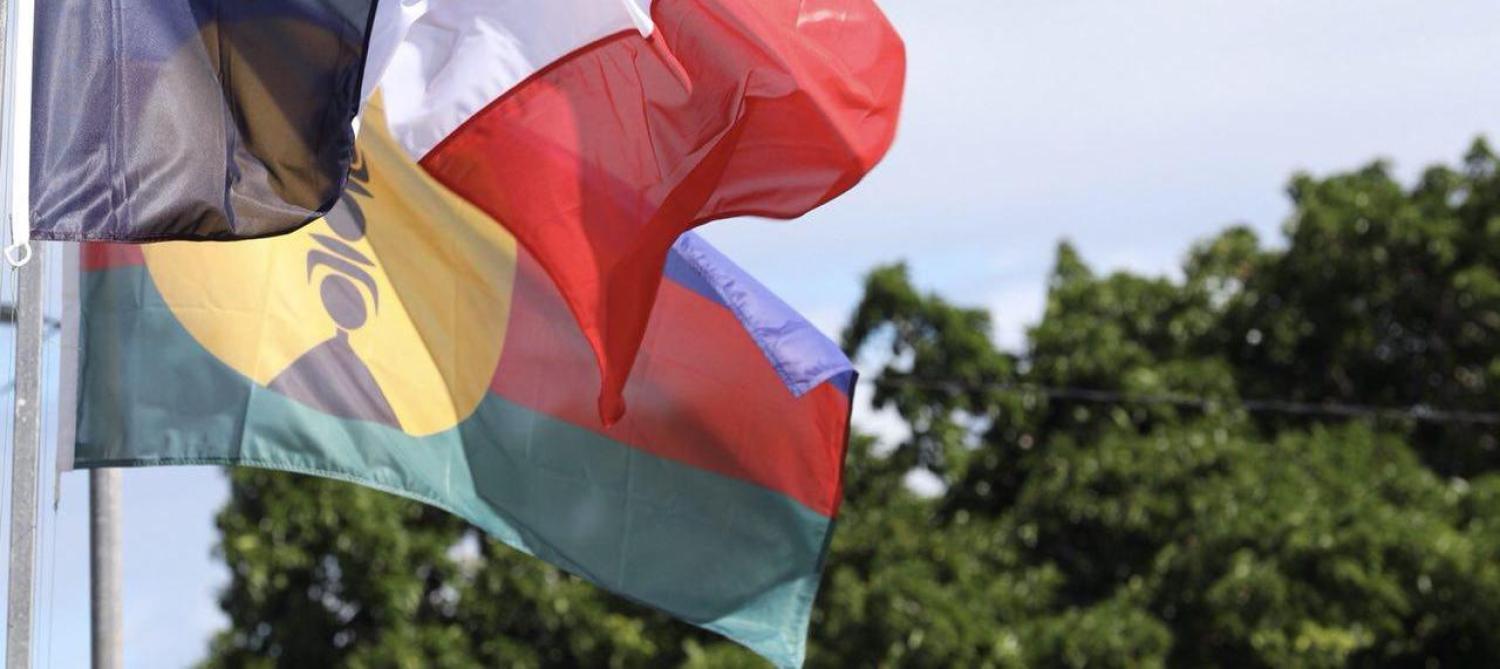French President Emmanuel Macron’s visit to Australia was a frank success, although some observers were puzzled after he raised the idea of a “Paris–New Delhi–Canberra” diamond within an Indo-Pacific axis.
Yet this proposal is clarified by French national objectives evident in his visit to New Caledonia.
While the Australia visit was no doubt important for France – no French President would spend so much time away from Paris otherwise – it was part of a wider choreography. France applied its consummate diplomatic skills to advance key national interests as Macron visited Australia’s neighbour New Caledonia, which will vote on independence from France in November this year after decades of deferral.
The stakes are high for France. A strategic reassessment over the past ten years has acknowledged the roles its overseas territories play in underpinning French leadership claims to UN Permanent Security Council membership, in the post-Brexit European Union, in NATO, and as a strong US ally.
France is the world’s second-largest maritime-zone power by virtue of its Pacific territories alone, which contribute 7 of France’s 11 million square kilometres of exclusive economic zone. France gains a seat at Asia-Pacific and Pacific regional tables at a time when the Pacific is overtaking the Atlantic in geostrategic influence. Its Pacific territories are a base for its military presence, scientific and technological research, and the European space program.
New Caledonia is the jewel of French possessions. France has shifted its Pacific military base from Tahiti to Noumea, and with more than a quarter of the world’s nickel reserves and the promise of hydrocarbons, New Caledonia is France’s major mining interest.
The referendum will at the least redefine the nature of France’s engagement in New Caledonia, and France’s other overseas territories, including French Polynesia, are watching, poised to claim similar concessions. This is the first of up to three votes possible in the next three years, and few expect a result favouring independence. But many parties want extra autonomies beyond those already transferred under the 1998 Noumea Accord.
Peace is at risk. The process touches raw nerves, particularly for Kanak independence supporters, who fought for this vote and lost family in the 1980s civil war. Pro-independence and pro-France groups, both with extremist elements, are divided.
Macron prepared the ground first in Australia, defining France’s Indo-Pacific strategic perspective which is based on its overseas possessions in the two oceans. In Noumea, he convened Pacific leaders at the Secretariat for the Pacific Community to discuss climate change and biodiversity. This also generated a powerful photo, a message for local voters, of the French President surrounded by Pacific leaders supportive of France’s regional participation.
His visit was highly symbolic, set to coincide with three anniversaries: the 5 May 1988 massacre of 19 Kanaks on Ouvea Island, which led France to negotiate the Matignon Accords; the 4 May 1989 assassination of independence leader Jean-Marie Tjibaou, by his own supporters, for having signed the accords; and the 5 May 1998 signature of the Noumea Accord, postponing the referendum to 2018 because of the risk of a return to war.
Macron was the first French President to visit Ouvea since 1988, and he did so with ease and sensibility, walking arm-in-arm with Tjibaou’s widow, and stepping back to allow the families of those killed to present wreaths, under a Kanaky flag.
He presented the collegial government with the 1853 papers claiming French possession of New Caledonia, which the Noumea Accord in its conciliatory opening sentence recognised as a unilateral act over the indigenous people. With this handover, Macron said that the time of possession was past, and that it was up to all New Caledonians to decide on their future.
But if the loyalists were upset by these symbolic acts, Macron indirectly met their concerns in his keynote speech on 5 May, emphasising conciliation.
Reaffirming that he would not take a position on the outcome of the referendum, Macron said that, with the world watching, France would hold an “incontestable” referendum, keeping its word in the signed accords.
However, he framed the process as “constructing a sovereignty within a national sovereignty”, urging peace and an acceptance that life must go on after the vote. He argued that France would be the poorer without New Caledonia, noting its contribution in the two world wars and as a model of institutional innovation and collegial consensus.
Macron referred at length to France’s Indo-Pacific strategy, and invited New Caledonia to become part of it. First, for security: with the US recently turning its back on the region; China seeking regional hegemony; and with France the last remaining Pacific European power. Second, for economic development, foreshadowing a strengthening of the nickel and tourism sectors and expansion into food production, forestry, and marine exploitation. Third, for support facing climate change.
While resonating with past French rhetoric that emphasised the advantage of French protection at critical points in the independence struggle, Macron’s visit set a tone for local parties in the months to come, marked by respecting all positions and affirming a common New Caledonian identity valued by France within a broader regional vision.

